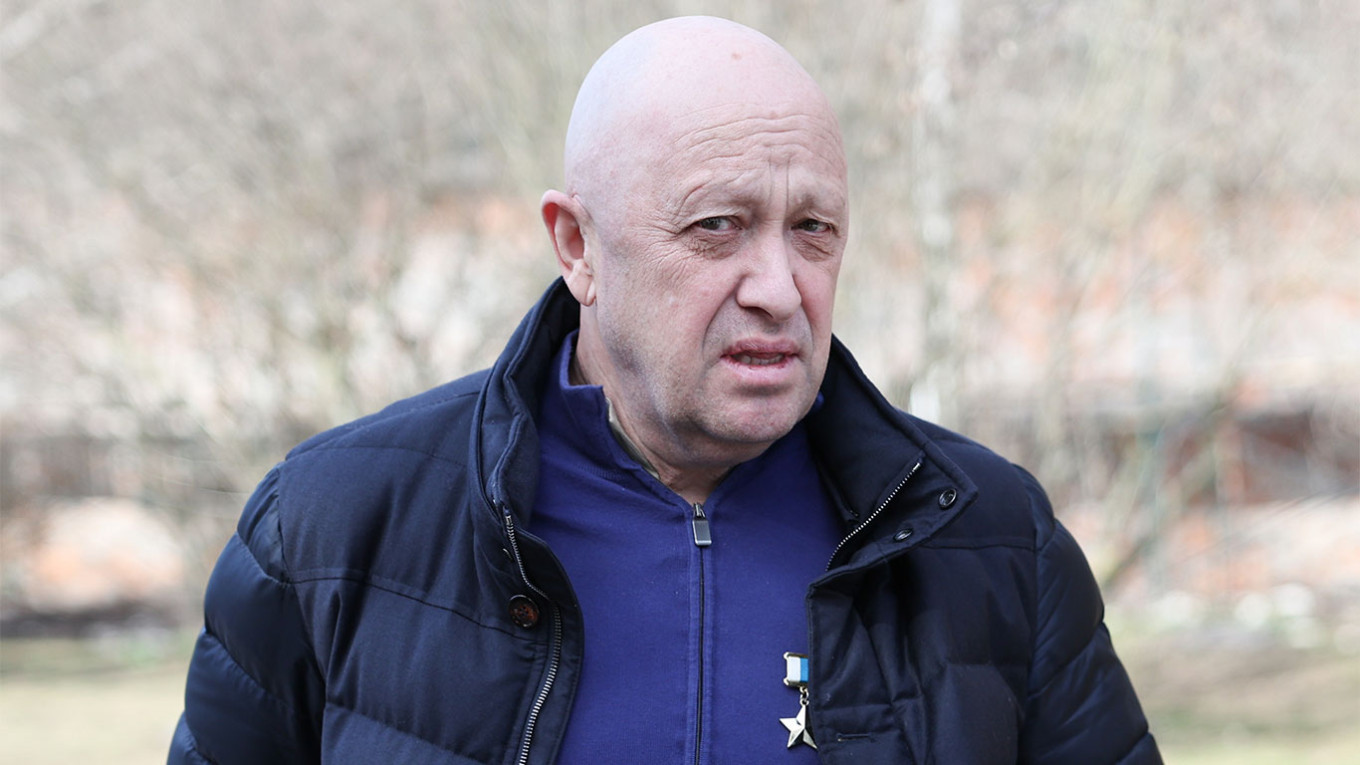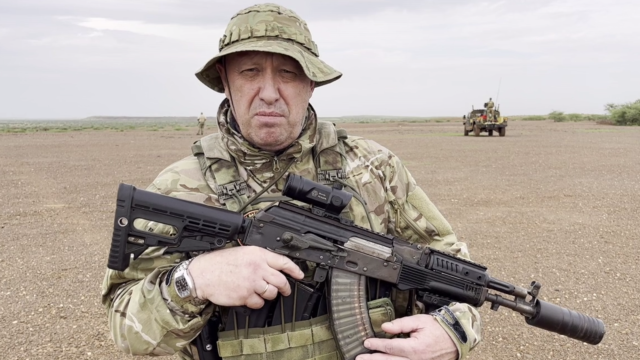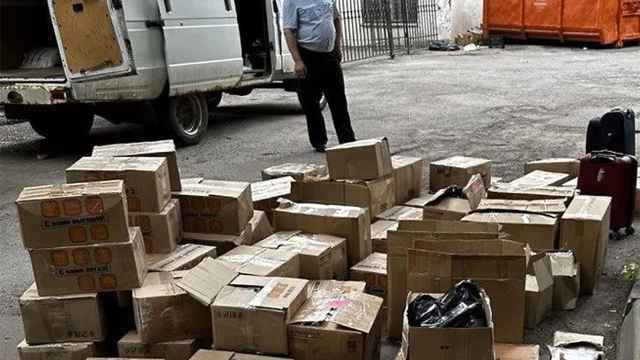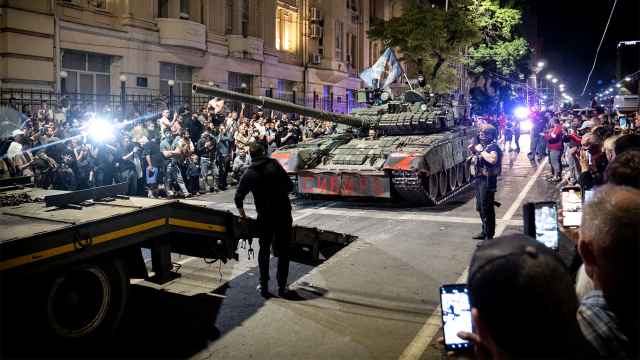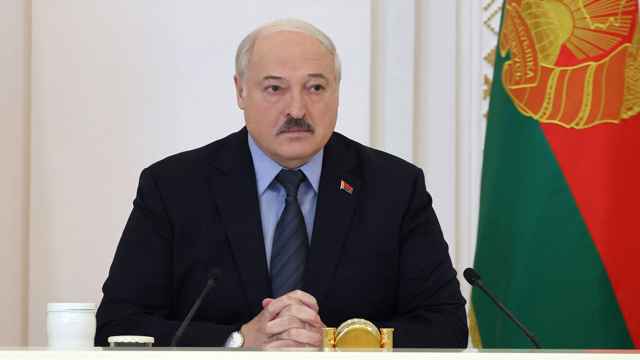On the evening of June 23, Wagner mercenary leader Yevgeny Prigozhin was preparing to give the order for his men to march to Moscow and demand the removal of Russia’s military leadership after months of rising tensions.
Meanwhile, a seemingly unremarkable event was unfolding inside the State Duma’s imposing Stalinist headquarters a few hundred meters from the Kremlin — one that nearly became an unprecedented political scandal.
At around 5 p.m., a few dozen people gathered for a roundtable in the State Duma’s Minor Hall.
Sergei Mironov, the head of the A Just Russia – Patriots – For Truth party and a longtime ally of President Vladimir Putin, opened the session with a pre-recorded video message that was followed by remarks from several other MPs and functionaries.
In their speeches, the MPs criticized Moscow’s insufficient support for mobilized and volunteer soldiers fighting in Ukraine, suggesting introducing government bonds and a state monopoly on alcohol to boost the military’s funding.
Prigozhin had secretly planned to attend this session to deliver a harsh criticism of Russia’s military top brass from the floor of the State Duma in a last-ditch attempt to win back Putin’s approval — but his plans were canceled at the last minute, The Moscow Times has learned.
These plans were disclosed on condition of anonymity by a person familiar with Prigozhin and his plans and a source in the State Duma. A person close to the leadership of the A Just Russia party confirmed this information.
“He was going to voice the whole array of problems with the SVO [special military operation’], with the Defense Ministry, the real number of casualties among our fighters, etc. The whole f****d up thing, in fact,” the person told The Moscow Times. “His assistants were preparing his visit.”
With the start of the full-scale invasion of Ukraine in February 2022 and Wagner’s increased role on the frontline, Prigozhin's influence grew rapidly and peaked dramatically. Soon, he had become one of Russia's most visible public figures.
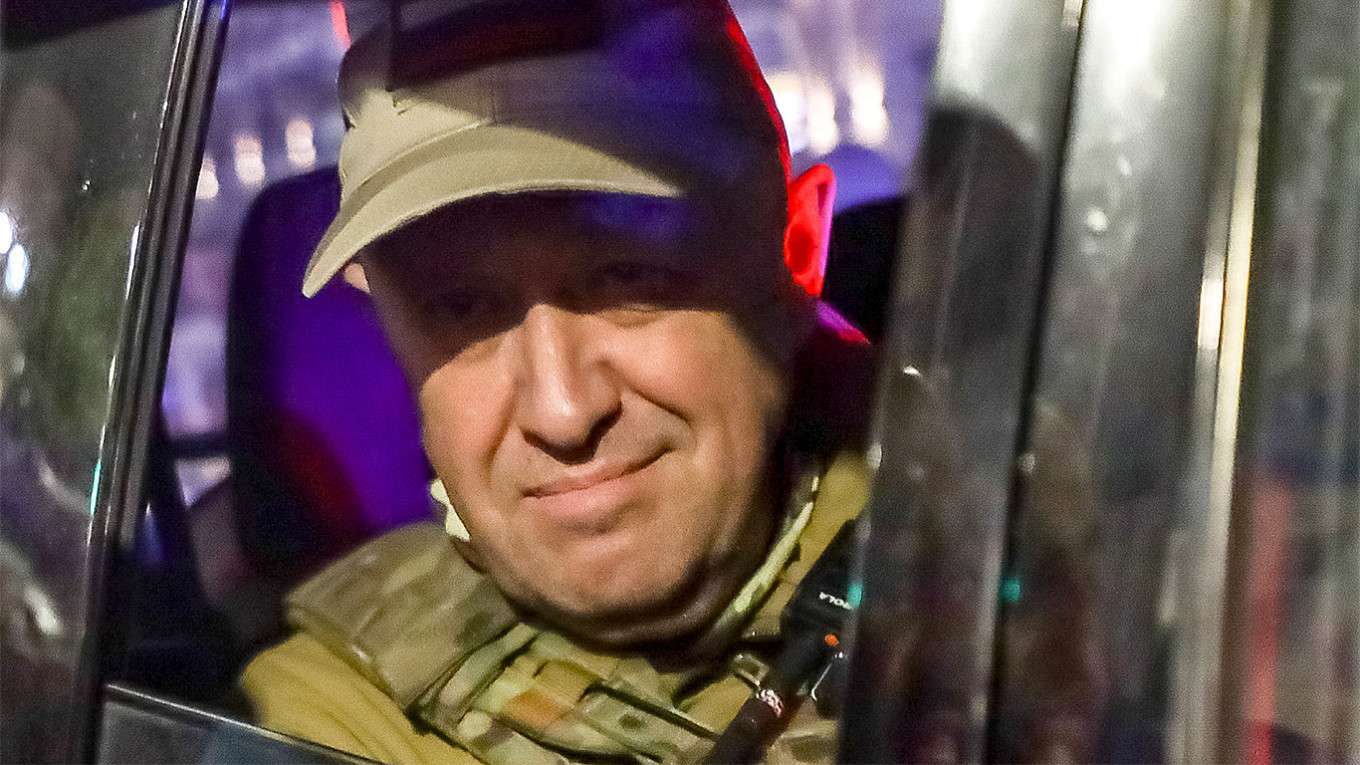
By June 2023, his popularity with Russians had reached a record level. He appeared fifth — after Putin, the foreign minister, defense minister, and prime minister — on the ranking of figures most trusted by the Russian public, according to the Romir polling agency.
However, his growing influence and his aggressive manner of doing business provoked and exacerbated conflicts with the Russian army as well as with members of Russia’s elite.
These included Yury Kovalchuk, Putin's childhood friend and major shareholder of Rossiya Bank; the Federal Security Service (FSB); and Sergei Kiriyenko, Putin’s first deputy chief of staff and domestic policy supervisor, the independent IStories news outlet reported in late 2022.
Kremlin-controlled media outlets were ordered from the beginning of 2023 to limit how often they mentioned Prigozhin, especially as his statements on Wagner’s ammunition shortages became more aggressive, the independent Vyorstka news outlet reported in late February.
By the late spring and early summer of 2023, the Wagner leader suddenly found himself a pariah.
As his conflict with Defense Minister Sergei Shoigu and General Staff chief Valery Gerasimov came to a head, the informal influence that had always been one of his advantages was drying up. He was deprived of the ability to personally discuss and resolve issues with the Kremlin and the government, and lost his access to Putin.
"Even those offices where he used to be able to literally kick open the door were off-limits to him," a government source told The Moscow Times.
To get the president’s attention and win his support, he would have to take extraordinary measures.
“The Duma, though it does not make such decisions, seemed to him in some ways an opportunity to jump into the last carriage of a departing train,” a source close to the United Russia party leadership told The Moscow Times.
Prigozhin visited the State Duma in the spring to seek permission to speak from the lectern. However, State Duma Speaker Vyacheslav Volodin turned down his request.
"Volodin rejected this, as there was a ban from the Kremlin on any activity by ‘Putin's chef’," a source in the Duma told The Moscow Times.
After this, the decision was made to organize Prigozhin’s presentation with the help of his allies from the A Just Russia – Patriots – For Truth party.
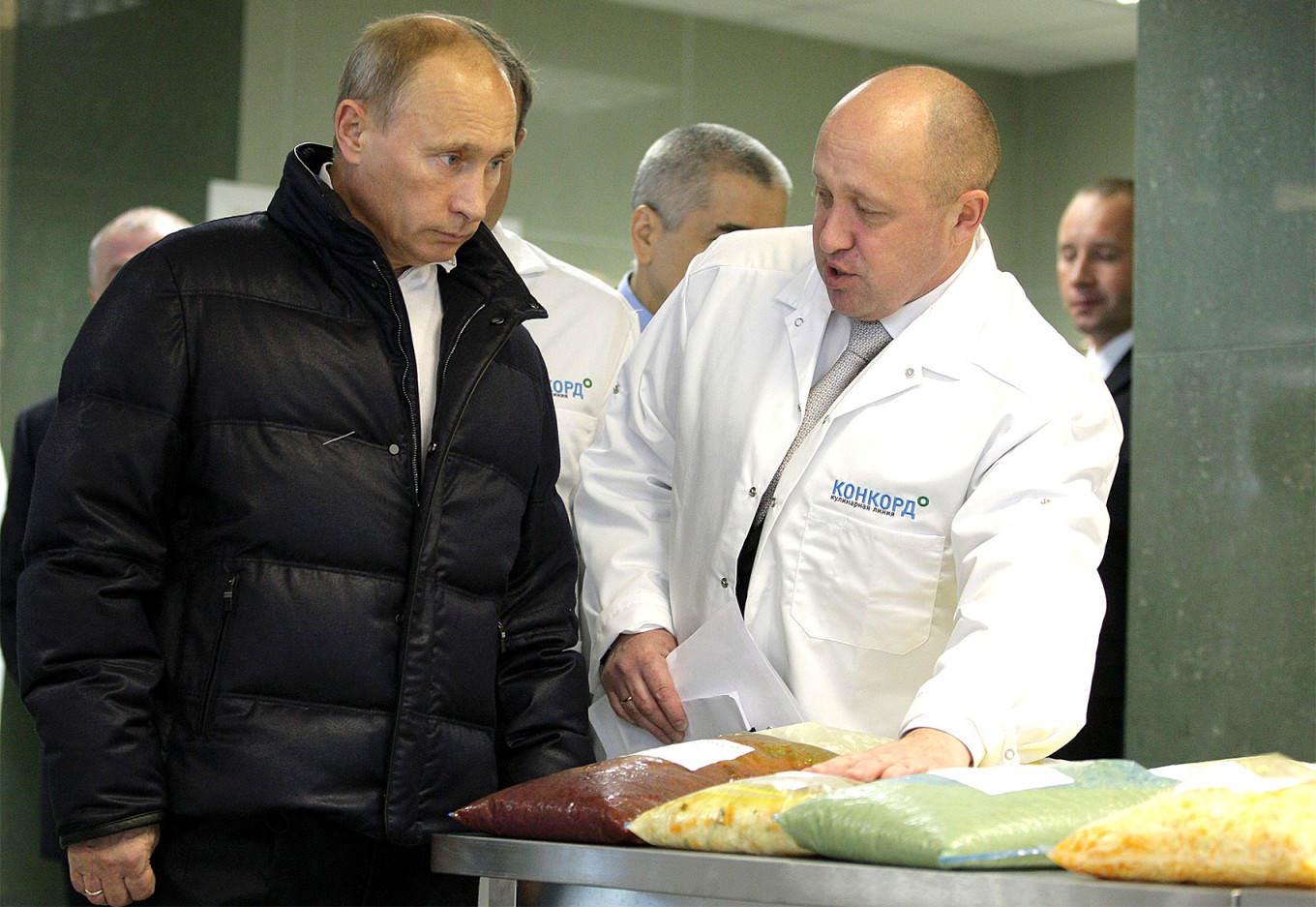
After the full-scale invasion of Ukraine, the party was widely perceived as sympathetic toward Prigozhin and Wagner. The party attempted to legalize Wagner, while Mironov himself boasted of his friendship with Prigozhin and posed with a sledgehammer — a symbol of Wagner’s cruelty.
The party’s other leader, pro-Kremlin writer and nationalist Zakhar Prilepin, posted a selfie with Prigozhin from a hospital, saying on his Telegram channel that they discussed the course of the invasion.
"[It was] all prepared in secret from the Duma leadership and party leadership," a source in the party said.
The late Wagner leader was supposed to enter the Duma by invitation from a party deputy.
His inner circle was seriously considering the possibility that he would be accompanied by Gen. Sergei Surovikin, the former head of Russia’s invasion force, to make his address more convincing, a source familiar with the plans told The Moscow Times, adding that the two had been very close.
“Prigozhin needed a high-status, official platform with the Russian coat of arms. According to his plan, in that event, his uncensored statements would definitely be brought to and put right on Putin's desk,” a person close to the State Duma leadership told The Moscow Times.
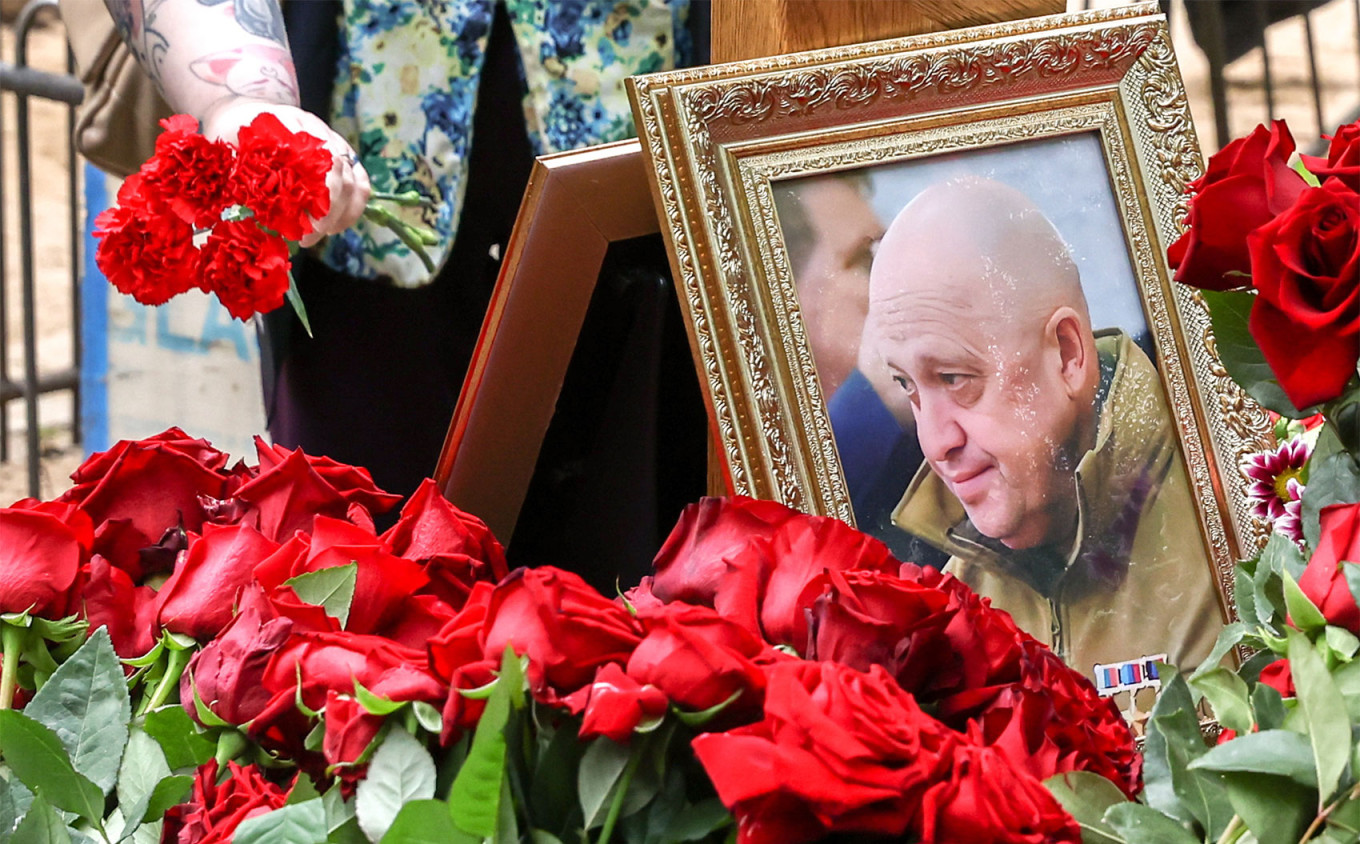
The footage of his speech at the party roundtable with a recognizable entourage from the Russian parliament would have played to his advantage. And the media coverage of his harsh statements in the Duma would have forced Putin’s aides to inform him of the incident.
On June 22, the day before the planned speech, The Moscow Times' sources were told that Prigozhin's participation in the roundtable meeting had been canceled without explanation.
"Prigozhin's press reporters should have been at the roundtable. The package was not supposed to be published the same day, but later. There was to be a major scandal afterward," a source in the party said.
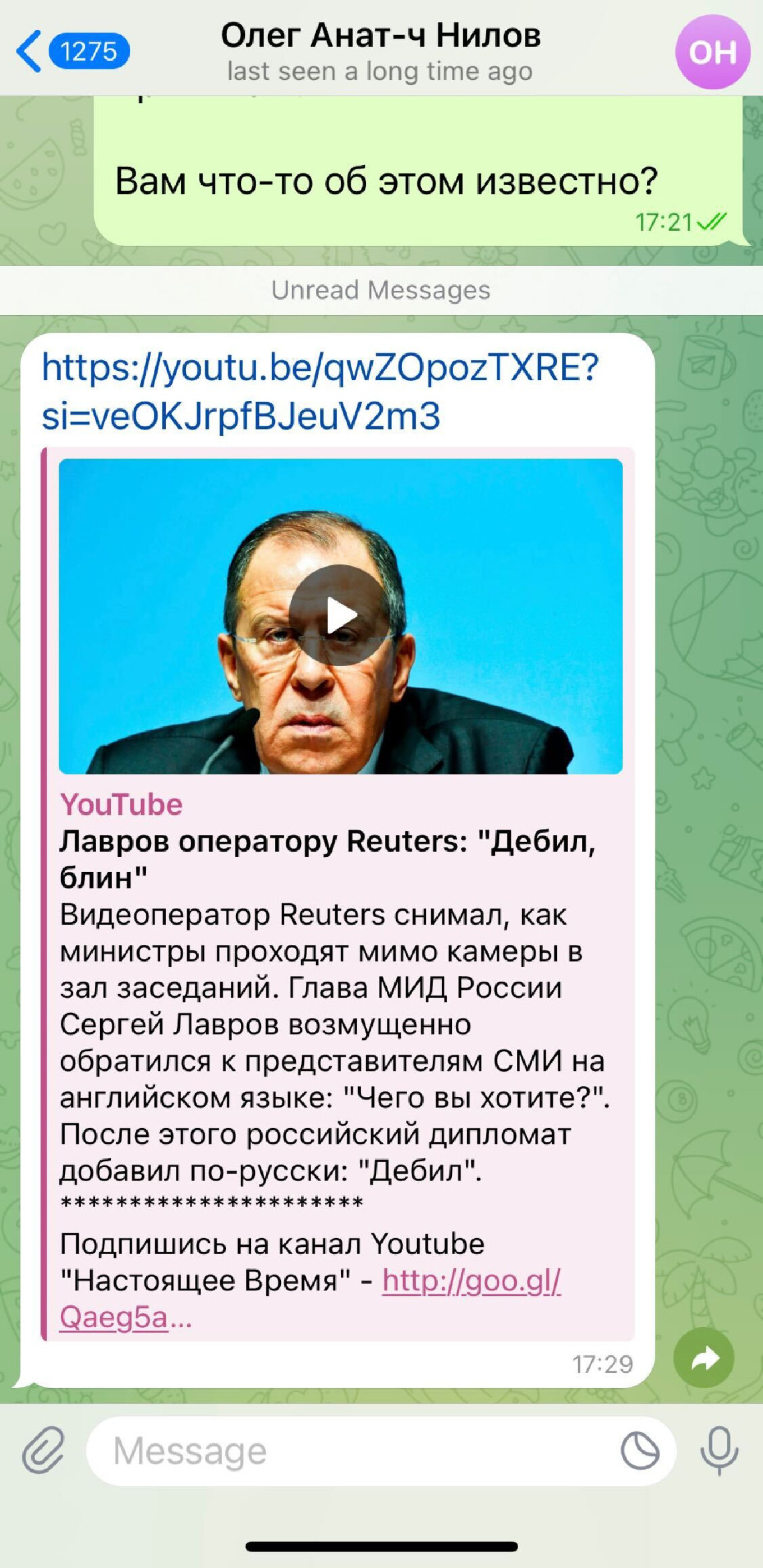
When asked if he knew of Prigozhin’s plans, A Just Russia deputy Oleg Nilov, one of the roundtable’s speakers, responded with a link to a video of Foreign Minister Sergei Lavrov telling reporters: “What do you want, moron?”
Other participants of the roundtable did not respond.
The Moscow Times sent requests for comment to the State Duma press office, as well as to those of the A Just Russia – Patriots – For Truth party, Mironov and Prilepin. None have responded.
Within hours of the roundtable, Prigozhin declared a “march of justice” on Moscow. Wagner mercenaries occupied a military headquarters in Rostov-on-Don and send a column of troops toward Moscow until Prigozhin agreed to stand down some 24 hours later.
In two months, Prigozhin and other Wagner leaders would die in a plane crash northwest of Moscow.
Prigozhin had desperately wanted to enter Russian politics as a legitimate and equal player — and after he failed to do it from the front door, he tried to get in from the back door, Andrei Kolesnikov, a senior fellow at the Carnegie Endowment for International Peace, told The Moscow Times.
“Both the secret preparation of the failed Duma speech and his march on Moscow are attempts to regain the president's favor. He did not want to take power, but to show his capabilities,” Kolesnikov said.
“But he chose the wrong way and miscalculated.”
A Message from The Moscow Times:
Dear readers,
We are facing unprecedented challenges. Russia's Prosecutor General's Office has designated The Moscow Times as an "undesirable" organization, criminalizing our work and putting our staff at risk of prosecution. This follows our earlier unjust labeling as a "foreign agent."
These actions are direct attempts to silence independent journalism in Russia. The authorities claim our work "discredits the decisions of the Russian leadership." We see things differently: we strive to provide accurate, unbiased reporting on Russia.
We, the journalists of The Moscow Times, refuse to be silenced. But to continue our work, we need your help.
Your support, no matter how small, makes a world of difference. If you can, please support us monthly starting from just $2. It's quick to set up, and every contribution makes a significant impact.
By supporting The Moscow Times, you're defending open, independent journalism in the face of repression. Thank you for standing with us.
Remind me later.



